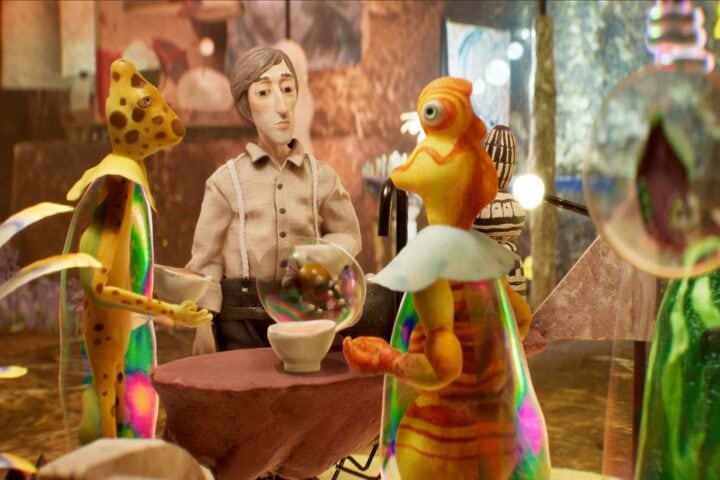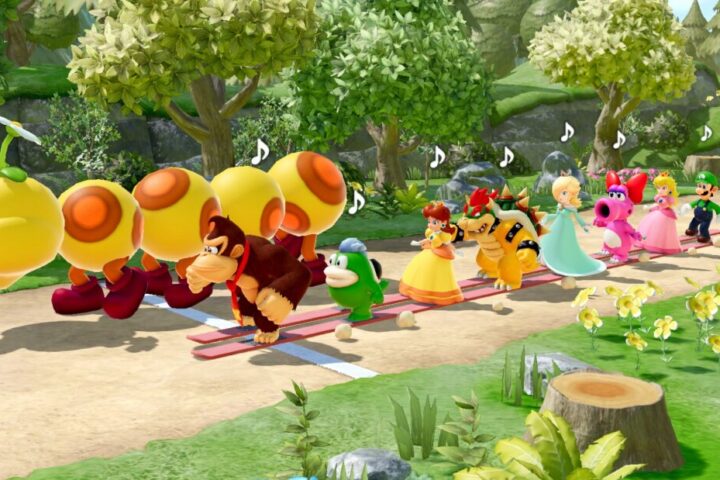Any sequel runs the risk of diminishing returns, and Color Gray’s 2022 puzzle game The Case of the Golden Idol risks them more than most. Its game mechanics are quite straightforward, not particularly suited to change. Presented as a series of darkly comic vignettes, each of the game’s puzzles is a sort of Mad Libs murder mystery where clicking through a crime scene nets you a word bank to then fill in the description of what transpired. From an omniscient POV, you root through characters’ belongings, read their notes, and scrutinize all manner of environmental clues to deduce the solution, which feeds into a larger story involving the golden idol and the mysterious powers that drive men to kill for it.
None of that changes on the game’s follow-up, Rise of the Golden Idol, but familiarity hardly dulls the sheer delight of the series’s ingenious structure. Each larger scene is composed of several smaller puzzles, like identifying character names, or the dates or symbols. Not only does this piecemeal gameplay approach string players along by enticing them to solve just one more puzzle, but it breaks a more complex scenario into manageable chunks, laying breadcrumbs to the final solution at the same time as it playfully sows the scene with red herrings. The more lively and vibrant a vignette may be, the more details you have to parse.
Which isn’t to say that Rise of the Golden Idol is a simple victory lap. The presentation has seen a considerable upgrade, with the game swapping out its predecessor’s pixelated stylings for smoother art that allows for more detail and further emphasizes the caricatured designs.
In a practical sense, the exaggerated characters help to identify who’s who; for one, a prison graffiti teases that one of the guards has a “honker,” and so you can immediately label the guy with an enormous nose. But the art style is also key to the series’s distinct atmosphere of comic intrigue, which the sequel transplants to the 1970s. Now, rather than its predecessor’s 18th-century skullduggery, you’ll unravel schemes involving big business and broadcast television against backdrops like drive-in theaters, game shows, and hippie communes.
Perhaps the biggest change, though, is to the interface. In The Case of the Golden Idol, you flip back and forth between an “exploring” screen to investigate the crime scene and a “thinking” screen with fill-in-the-blank puzzles. Now, the puzzles appear in pop-up windows for ease of reference, overlaid on the crime scenes and able to be toggled at the press of a button.
This change sacrifices some of the elegance of the original’s presentation, but the trade-off is a greater density to the levels and a more interconnected design, since you can now quickly jump between scenarios to reference crucial details for solving an even larger puzzle that incorporates clues from multiple scenes. That new layer may sound intimidating, but like the rest of the game, it’s broken down so intuitively that it’s rewarding rather than overwhelming.
Perhaps by its very nature as a sequel, Rise of the Golden Idol was never going to be the revelation that the original was. But by playing to the strengths of the first game’s concept through even more intricate puzzle design, it offers a worthy follow-up in a spirited new setting.
This game was reviewed with a code provided by Playstack.
Since 2001, we've brought you uncompromising, candid takes on the world of film, music, television, video games, theater, and more. Independently owned and operated publications like Slant have been hit hard in recent years, but we’re committed to keeping our content free and accessible—meaning no paywalls or fees.
If you like what we do, please consider subscribing to our Patreon or making a donation.





